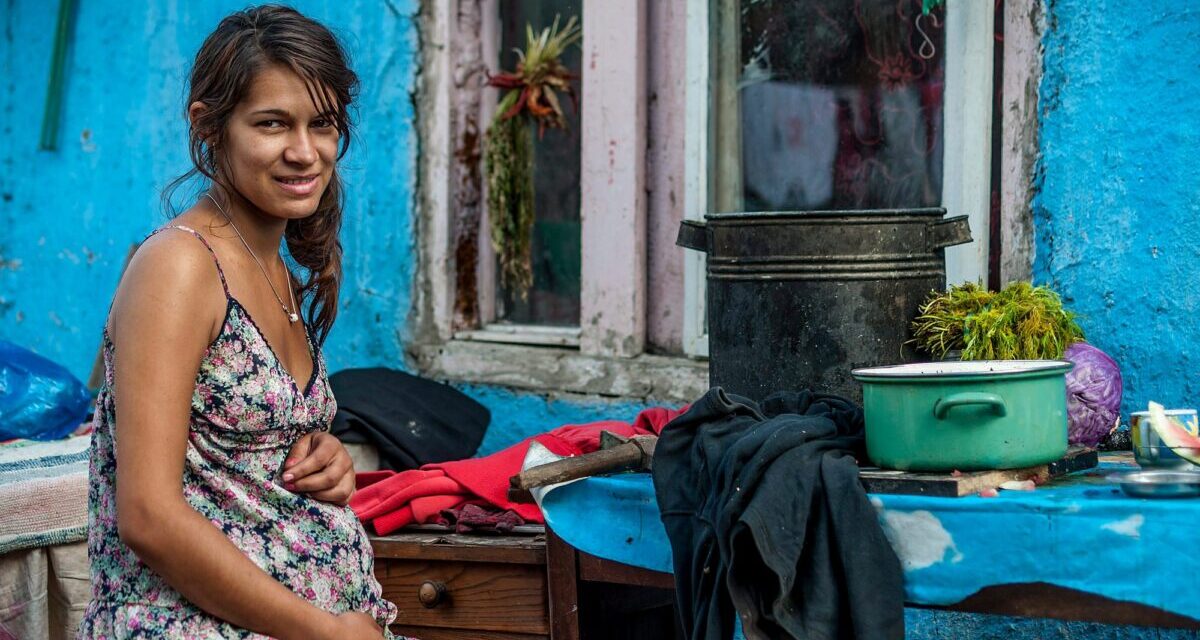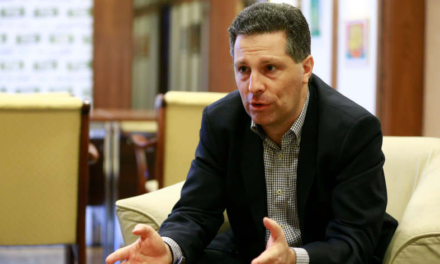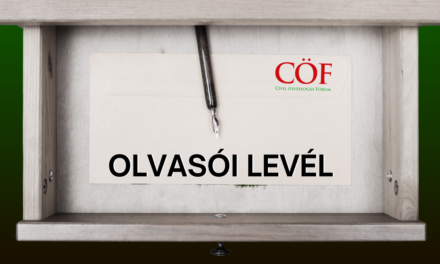For today's disadvantaged and gypsy youth under the age of 18, getting to know LGBTQ dimensions is a much lower priority than getting help in understanding the functioning of their own body, the fundamentals of heterosexuality, the spiritual connections of relationships, the importance of female-male equality and that they must take responsibility for their decisions. The writing of Roma expert István Forgács.
"Can someone show me where your kidney is?"
In the rural community center, the faces of dozens of people appear in front of me, and then they look at each other, wondering what I want to do with this. Since no one is willing to give a real, clear answer, another question arrives:
"Can someone tell you how many liters of blood a person has? "
"Many!" someone shouts from behind, keeping the general good mood.
"Some have none!" - comes a perfect joke, at which everyone laughs.
I look around gratefully, because a light, open, cheerful start is always important in any public forum where I want to talk about difficult topics with people. More specifically, talking to people with a difficult fate, disadvantaged situations, most of whom are Gypsies, about issues, perceptions of life, and basic approaches that are stuck behind difficult, entrenched positions that seem almost immovable.
Of course, in a small rural town of just under 20,000 people, which also includes a significant local Roma community, most of the local Gypsies (mainly under the age of 30) cannot even show their basic, vital organs or say even two words also about what functions they are responsible for, that is not unique at all.
In fact. In many places, not only the Gypsy youth, but also the local non-Gypsy youth are confused and uninterested, when they don't even know the basics of things that are otherwise considered classic and considered to be of utmost importance.
The correct answer to this is not that Hungarian public education is so bad, or that maybe you don't need this knowledge, because you can look it up on the Internet at any time. That's right, anytime. But they usually never do.
When in many places they don't even want to learn about the basics that are important for their own health and biological development, then what should be done in order to get to know something even more complicated, which reveals the secrets of the soul as well as the body, sexuality in such a way that should it help their own development, but at the same time not adversely affect their family and immediate environment?
In a community center, you can no longer ask dozens of friends, acquaintances or even relatives questions that they cannot answer themselves. This points to one of the biggest challenges of our time.
While our entire society is both prudish and soullessly unbridled (promiscuous) in the field of sexuality, at the same time, some of the gypsy communities still consider their traditional attitude to be stagnant and stunted.
In recent weeks, a research has received quite a bit of media attention, according to which, compared to the EU, the number of mothers who gave birth as teenagers is particularly high in Hungary.
29 percent of the respondents declared themselves to be Gypsies in the survey, and according to the more liberal experts, based on this data, the findings made by the research, or childbearing at a young age, should not be considered ethnic-specific at all.
On the other hand, I don't want to get caught up in the numbers, as there is a high chance that even the most decisive data can be distorted, so they very often do not show the real picture. In order to be able to really help, one should not only measure (poison), draw and constantly repeat the supposed or real numbers, but also do, act, and act actively where it is really needed.
The sexual characteristics of the underprivileged and Gypsies, as well as the resulting childbearing, have not been talked about for a very long time.
The later the real social dialogue starts about it, the bigger the challenges will be. While even the most prepared and scientific experts are aware of how necessary it would be to deal with this, there is still a strong fear of how politically correct it is possible to remain in an issue where even the most sincere and true statements lead to an immediate worldview conflict.
It is unnecessary to reopen the question of whether the majority of teenage pregnancies (and abortions) are really in Gypsy communities, but it must be said (this data cannot be distorted!) that most premature babies are born in Borsod and Szabolcs .
Not only because the number and proportion of poor people in these counties is clearly higher than the national average, but also because these counties are home to the majority of expectant mothers who are not offered enough help by their own communities and who cannot prepare themselves sufficiently in body and soul for everything that comes with expecting a baby. In order to understand this whole set of connections, we first need to hear their answer to the question of whether they know where their kidney is. Because this is the starting point of the seemingly endless mission.
It is necessary to experience up close how much today's young people in many disadvantaged and gypsy communities do not know their own body, its biological laws, gender itself, and the fact that sexuality is an extended thing in which others are involved. It is quite surprising that in some cases the lack of hygiene (menstrual poverty) does not mean the lack of money to spend on the most basic things, but rather the awareness and the determination to spend on it.
At the same time, one must also see the processes in which, due to the different heterosexual gender, in a significant part of disadvantaged and gypsy communities, the relationship between boys and girls tilts at a very young age in favor of the boys, who often already exercise such dominance over the girls as teenagers that causes early distortions within both groups.
Especially when both boys and girls see similar but clearly distorted patterns at home and often accept them.
Girls often put up with the fact that boys - living as a kind of extended freedom - rule over them both mentally and physically. In the background of everything, in addition to the lack of basic knowledge, lies the fact that the environment around them very often turns a blind eye to this.
This results in those who might want to change being left alone, and after a while they either leave the given community (and never look back), or they give up and dissolve, just like many others have done in the last 30 years. This, in turn, leads to the fact that the number of premature births remains high in Szabolcs, there is still a lot of domestic violence in settlements inhabited by Gypsies in large numbers, and we can - completely unnecessarily - continue to argue about how many teenage mothers there actually are. In the circle of.
Yes, it should be put out the window!
It would be great if not only the nurse, the social worker and the mayor could see this, but finally everyone, because then perhaps more potentially involved actors would take on tasks in the change process: the hottest, extremely popular sexual psychologist would perhaps write a book, the condom manufacturer would display the issue of safe sex and conscious childbearing as well as responsibility among young people with a national campaign, on the packaging of its products or in its advertisements. It would be desirable if commercial TV, which today still pushes indirect sexuality in our faces unsolicited, would serve this topic directly, responsibly and informatively.
And the government could implement a youth policy strategy that helps change with money, professionals, and institutional background. As part of this, a national network of drugstores could be established, which would help reduce hygiene poverty. Today, new, progressive experts and community leaders are emerging who dare to break taboos within communities. However, the most important thing - and this should be written in the sky:
as a kind of support norm, sexual and relationship education must be provided for the entire Hungarian society, especially in disadvantaged areas and gypsy communities.
In the most disadvantaged and gypsy communities, the idea of conscious living and having children must be planted among teenagers, and yes, in school too!
You shouldn't be upset that the government dictates who can give lectures on sexuality in school. Nothing forbids this, but the government (quite rightly!) does not allow it for anyone.
We shouldn't be upset about how many hundreds of thousands of LGBTQ youth (primarily featured in the strange phantasmagorias of opposition activists) who are hiding are not offered help by the government. It should be seen that there are hundreds of thousands of young people between the ages of 12 and 25 who simply need information and education in order to balance their heterosexuality both physically and spiritually. Although we cannot make a distinction, if we set up an order of involvement, we must first of all help those young people who make up the heterosexual majority.
Especially in those communities where the parents are not able to provide a sufficient background for sexual, emotional and relationship development (because they themselves would often be in need of education just like their teenage children). Before anyone misunderstands, I do not question any parent's right to be the best person to help their child's sexual and relationship development. But it must be said that this is not enough in many families at the moment.
There can be no question that it is primarily young people living traditional (ie: male-female) gender roles who need help.
In inner-city intellectual salons, over a soy latte, one can cheerfully discuss the fact that LGBTQ ideologies do not reach elementary schools in Taktaköz, seeing the complete destruction of democracy. However, I think the main problem is that the norms of responsible sexuality, which can be considered traditional, do not reach there.
For today's disadvantaged and gypsy youth under the age of 18, getting to know LGBTQ dimensions is a much lower priority than getting help in understanding the functioning of their own body, the fundamentals of heterosexuality, the spiritual connections of relationships, the importance of female-male equality and that they must take responsibility for their decisions.
If there was a social consensus on this, then perhaps governmental public health and educational measures could be enforced that would help save hundreds of thousands of teenagers from the sufferings that appear at an early age and define their entire lives.
However, there is still a long way to go. There is a lag of several decades in some regions and some communities.
However, it is encouraging that while in many places they really don't know the answer to how much blood runs through a person's veins at the same time, while in other places the gypsies even go as far as donating blood, the women organize childbirth-related club activities for younger girls on their own, and there are it is not a gypsy man who bravely undertakes to give birth to a father, in fact, there are brave gypsy parents who, after a tragedy, are able to rise above their pain - and the centuries-old traditions - to the extent that they offer a donor the vital organs of their children who died in an accident.
Conscious childbearing, more orderly, safe sexuality, curbing early childbirth, equalizing male-female relationships are not ethnically specific, but they could provide the greatest help to the Gypsy ethnic group, while in the long term this also serves the interests of the entire Hungarian society and economy. .
That's why I boldly write: we need condoms, knowledge transfer, professionals, programs, priority government measures for disadvantaged and gypsy communities. In fact. We need to create family-friendly communities. For all of us, together.
The author is an expert on Roma issues
Cover image: Illustration / MTI Photo: Zsolt Czeglédi












